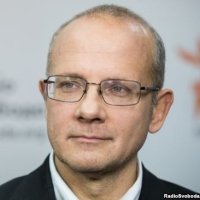Weimar Russia? Why Post-Soviet Authoritarianism Did Not Turn Fascist
The speaker will compare inter-war Germany and post-communist Russia, and compare both nations’ very different political paths. Like in Weimar Germany, in today’s Russia, fascist actors are present, and nationalism is widespread in the population. The post-Soviet Russian situation is, however, distinct from the inter-war German one in that the party system is heavily manipulated and the third sector remains underdeveloped. Fascists have thus neither had a chance to use elections nor did they have the opportunity to penetrate civil society in order to build up political support. The continuing presence of a resolutely authoritarian, yet non-fascist "national leader" (Vladimir Putin) is a hindrance for the country to become a liberal democracy, but makes it, for the time being, also improbable that the Russian regime will transgress towards fascism.
The talk is based on an article co-authored by Steffen Kailitz, Research Fellow, Hannah Arendt Institute for the Study of Totalitarianism, Dresden University of Technology. To read the article, please click here:
http://ku-eichstaett.academia.edu/AndreasUmland/Papers/235639/Why_the_Fascists_Wont_Take_Over_the_Kremlin_for_Now_A_Comparison_of_Democracys_Breakdown_and_Fascisms_Rise_in_Weimar_Germany_and_Post-Soviet_Russia
Please note that seating for this event is available on a first come, first served basis-no reservations required. Please call on the day of the event to confirm. Please bring an identification card with a photograph (e.g. driver's license, work ID, or university ID) as part of the building's security procedures.
The Kennan Institute speaker series is made possible through the generous support of the Title VIII Program of the U.S. Department of State.
Speaker

Analyst, the Stockholm Centre for Eastern European Studies at the Swedish Institute of International Affairs
Hosted By

Kennan Institute
After more than 50 years as a vital part of the Wilson Center legacy, the Kennan Institute has become an independent think tank. You can find the current website for the Kennan Institute at kennaninstitute.org. Please look for future announcements about partnership activities between the Wilson Center and the Kennan Institute at Wilson Center Press Room. The Wilson Center is proud of its historic connection to the Kennan Institute and looks forward to supporting its activities as an independent center of knowledge. The Kennan Institute is committed to improving American understanding of Russia, Ukraine, Central Asia, the South Caucasus, and the surrounding region through research and exchange. Read more
